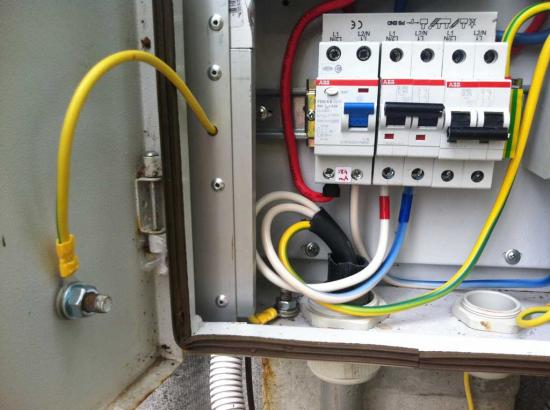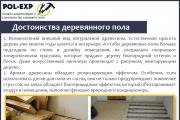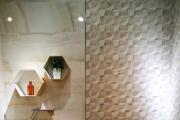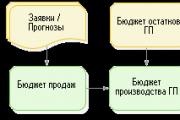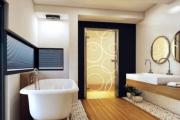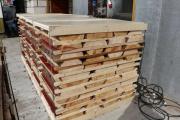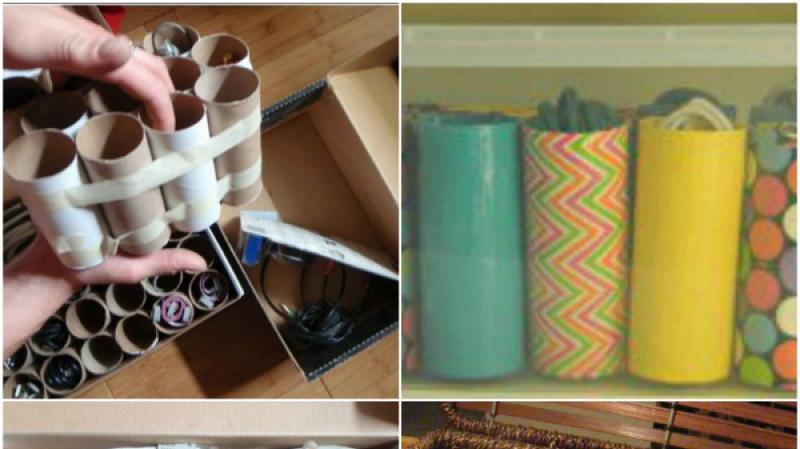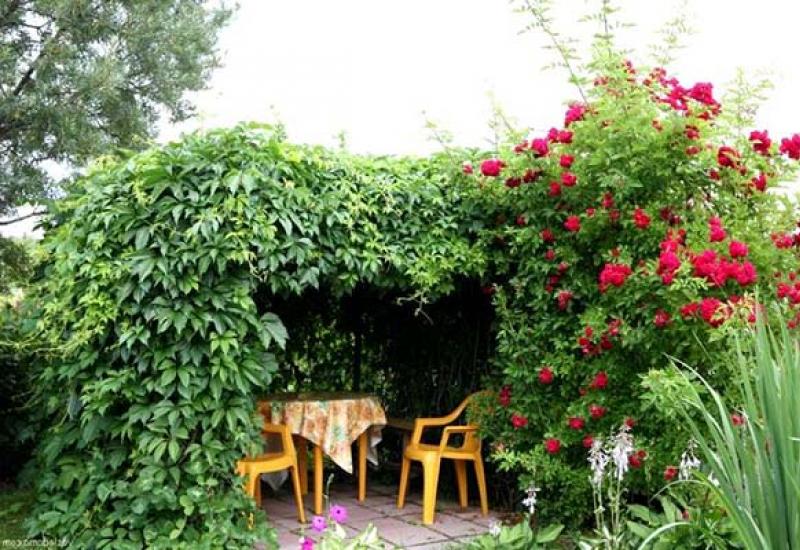How to assemble a three-phase electrical panel. Street billboard on the site
So a holiday has come on our street - Lenenergo contractors from Belgorod have finally built the promised 0.4 kV overhead line to our and several other sites. But I prepared for this event in advance - the introductory panel was already assembled.
I decided to take a cheap shield housing - IEK, IP54, dimensions 445x400x150. Just right for outdoor installation outside the site. Although it looks quite decent on the outside, the build quality on the inside is also quite good. There are no holes, the seal fits tightly around the entire perimeter, the mounting plate is made of fairly thick sheet steel.
The “trick” of all IEK panels is crookedly installed DIN rails. But my meter is also DIN rail, so I removed the standard short DIN rails and secured three rows of a good rigid ABB DIN rail with rivets across the entire width of the panel.
I decided to take the input circuit breaker with characteristic D to ensure selectivity of short-circuit protection. Type D is the slowest and should be the last to be triggered. Next in switchboard in the change house (and then in the house) for each phase there will be a separate two-pole input circuit breaker of type C, and for consumers there will already be circuit breakers of type B, the most paranoid.
The input machine is four-pole. Three poles are working power poles, one per phase. The fourth pole will be used as a signal pole, according to the state of which I will be able to remotely control the position of the contacts of the input machine. This is necessary so that the smart home system can adequately report the problem - what type of power failure has occurred, either the machine has cut and you need to drag yourself to the switchboard, or the power has been lost at the input and you need to start the generator and switch the input to the backup input.
I thought for a long time about what to take - a three-pole machine and an additional signal module (which is cheaper), or a four-pole machine. I settled on the last option because I thought it was more reliable and durable. After all, the introductory machine must be closed with a sealing lid and I will not have access to it. And the additional signal module looks more flimsy, and you are less confident in its reliability.
But for the RCD, which I decided to install after the meter, I just took an additional signal module. There are no other options here; you can control the state of the RCD remotely only in this way. The RCD in the panel is without sealing, in which case I can always get free access to it.
The shield was installed using a flexible stranded wire with a cross-section of 6 mm2. produced by Alur. Before choosing Alur, I made a test purchase of 1 meter of different colored wires from 5 different manufacturers (Alur, Promel, REK, Electric cable Kolchugino, Exvayer), checked all the wires for cross-section and quality of crimping, for flexibility and quality of insulation. The vaunted Kolchugin cable was disappointing with its different insulation diameters on wires of different colors, although otherwise it was good. Other brands were dropped for other reasons (some were poorly crimped, some had a cross-section that was lower than the declared value, some had a wire that was too soft and did not completely restore its shape). The “Alur” wire took first place in my rating, as it did not reveal a single drawback of its competitors.
Long bundles of wires were secured to self-adhesive mounting pads and nylon clamps. There is no particular meaning to this, rather for aesthetics.
To connect the outlet cable, I decided to use phase terminal blocks. Firstly, it will be more convenient to install the cable. Secondly, the terminal blocks have several clamps and are also intended for branching lines, that is, in the same panel it will then be possible to power something else additionally.
I also used terminal blocks for the signal wires, also for the convenience of connecting the outlet cables. All modular elements were fixed on DIN rails with stoppers. There was no great need for this either, but installing such a shield is much more pleasant - everything is firmly fixed and does not move anywhere. Unless the neutral terminal blocks were not able to be tightened on the second side - that’s where the clamped wires go out.
I thought for a long time whether to install SPDs and according to what scheme. I haven’t figured it out yet...
The assembled shield looks like this:
All that remained was to figure out how to secure it to the support. At that time, I was sure that they would supply us with wooden VLI supports, as they do everywhere now. I looked around the neighbors to see who was doing what, but basically no one bothered, the shields were simply attached to a steel tape.
I was not happy with this kind of fastener, as it looked flimsy and not at all vandal-resistant. I did not find any ready-made solutions with rigid brackets for round supports on sale. The question hung and did not want to be resolved.
Well, while I was procrastinating about this, the supports were brought and, lo and behold! They turned out to be reinforced concrete, rectangular (trapezoidal) cross-section. My intuition didn’t let me down - it’s good that I didn’t have time to make a mount for the round support.
Now everything has become much simpler and clearer - a U-shaped profile, tightened with threaded rods. I bought a profile, threaded rods, cut them, and got an excellent fastening. Fitting: 
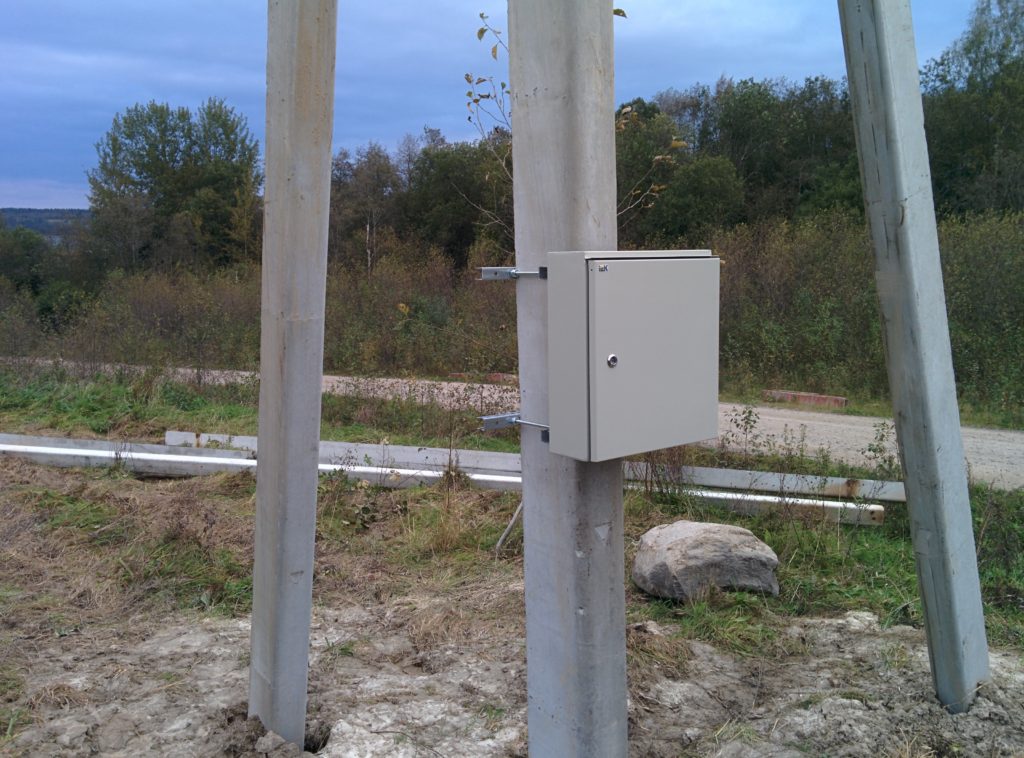
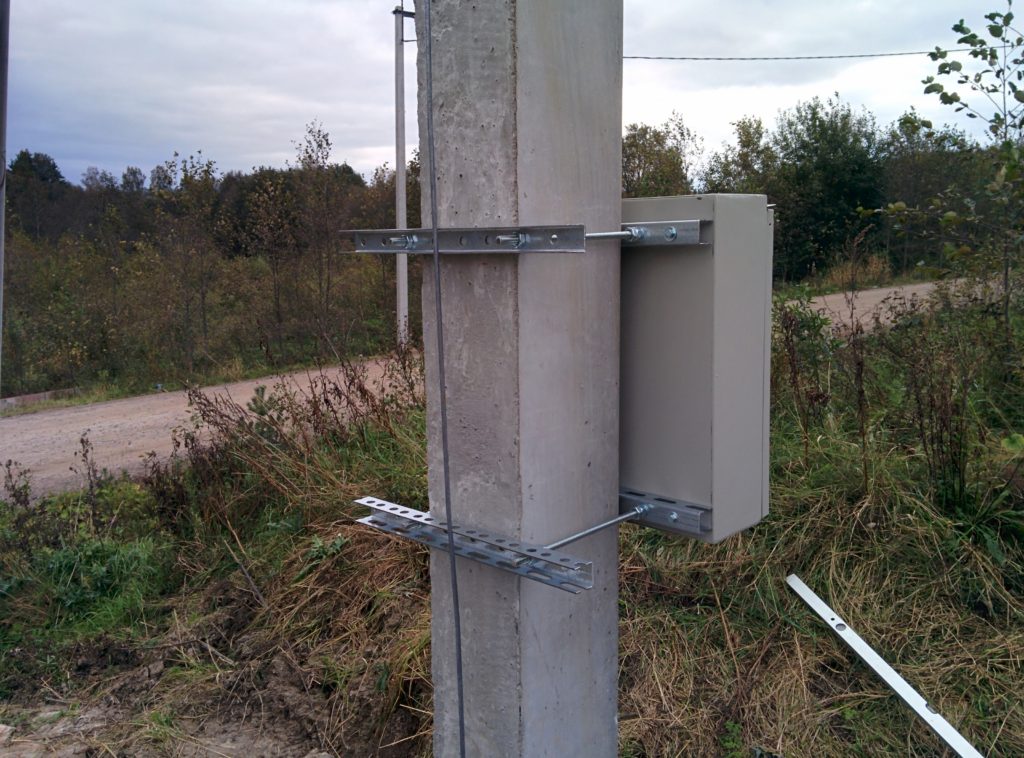
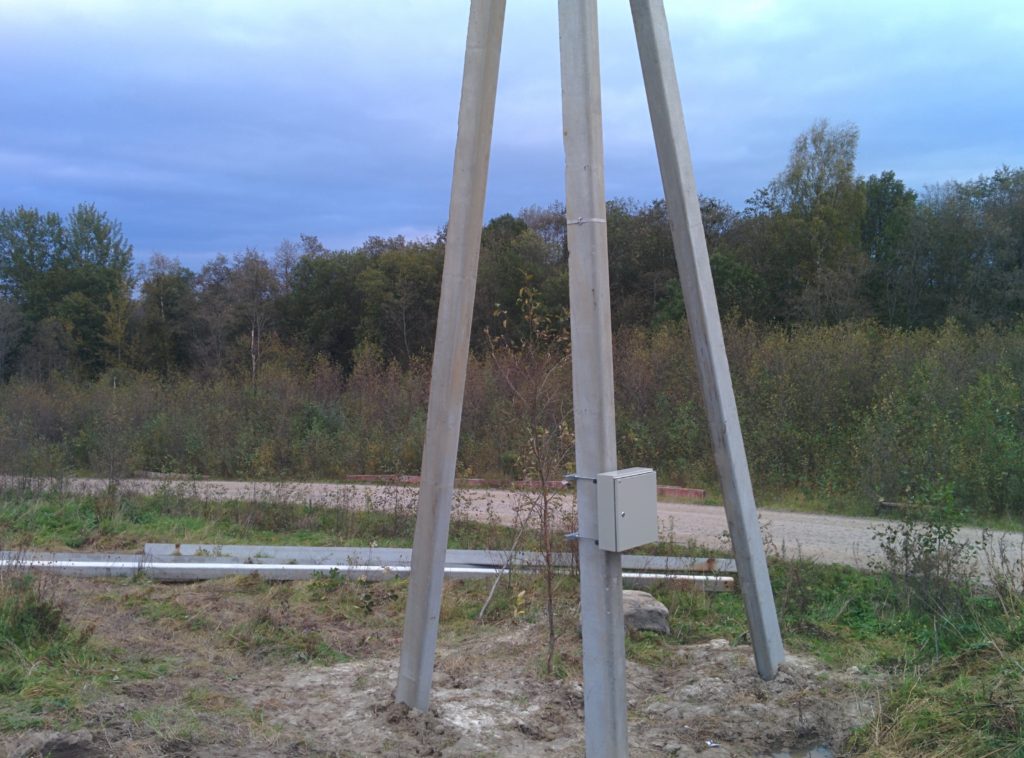
The parts of the profile that are farthest from the shield look ridiculous. But until I tried it on, it wasn’t obvious. Then I trimmed the uselessly protruding ends.
Standardly, the shield had only two holes for cable entry. But this was not enough for me. Firstly, it is not clear how to route the ground wire. Secondly, I planned signal wires, and they needed a separate input. Well, for some additional equipment that can be installed later (automation street lighting, for example) also requires a separate input. Therefore, I made three more holes in the shield in advance for seals of smaller diameter.
The installation of the descent (cable from the top of the support to the shield) according to the specifications must be carried out by the applicant on his own. That is, hire a contractor and pay for the work. Well, or climb yourself. Optional. No papers confirming the qualifications of the work performed are required. All that is required is the presence of an actually mounted trigger and shield.
Really, I’m a specialist, why pay someone and hope that they don’t cheat. I’ll climb onto the support as I do, and connect everything as it should. Moreover, the line is not yet powered (the contractors have not yet installed the STP), there is no danger. The Internet is full of information on how to do it, and I asked a direct question on the phone at Lenenergo: “can I do it myself?” - “Yes please!” Lenenergo once again outlined its requirements to me over the phone (the main ones, which are spelled out in the technical specifications).
I purchased SIP and fittings. Well, cats for climbing on poles. In general, I wouldn’t buy cats just for one occasion, but in the future I plan to hang my lighting on nearby supports. And then maybe a surveillance camera. And I’ll have to climb the poles anyway, I won’t have to call electricians every time. For just climbing onto the support and connecting the SIP release, without connecting to the panel and installing the panel itself, and without materials, the electrician asked for as much as 3 thousand. This is just to climb up, connect, secure the wire to the pole, and get off. All. Danuegonafik, cats cost 3200, but for many times there is complete freedom.
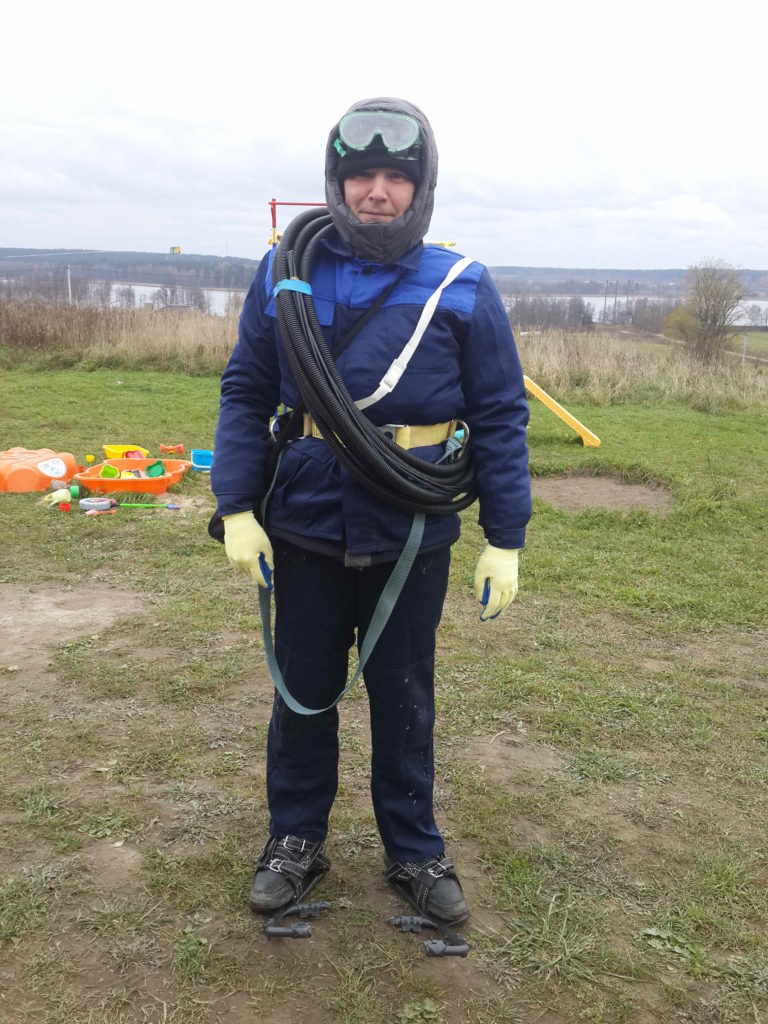
I had never climbed poles before, but I saw how easily and simply electricians do it, so there was no doubt about the feasibility of this enterprise. And indeed, in practice it turned out to be easy. A couple of minutes of mastering the crampons at the bottom of the post to figure out exactly how to position them for a secure fit, and I'm ready to climb.
A safety belt is a mandatory element of equipment; without it, I wouldn’t even think about climbing. I have had the belt since Soviet times. Although in the end its functions were not useful, and it was most of all a hindrance and slowed down progress. But it was the presence of insurance that gave confidence in the safety of the process. At the bottom, I checked how I would hang on the belay if I fell off the crampons (and it’s actually very easy to fall off the crampons if you make the wrong foot movement). The restraint strap, which I wrapped twice around the post, held my weight securely without a hint of slipping. There was no risk of falling, so I calmly got to work. Fortunately, I don’t have a fear of heights, provided that there is no risk of falling from it.
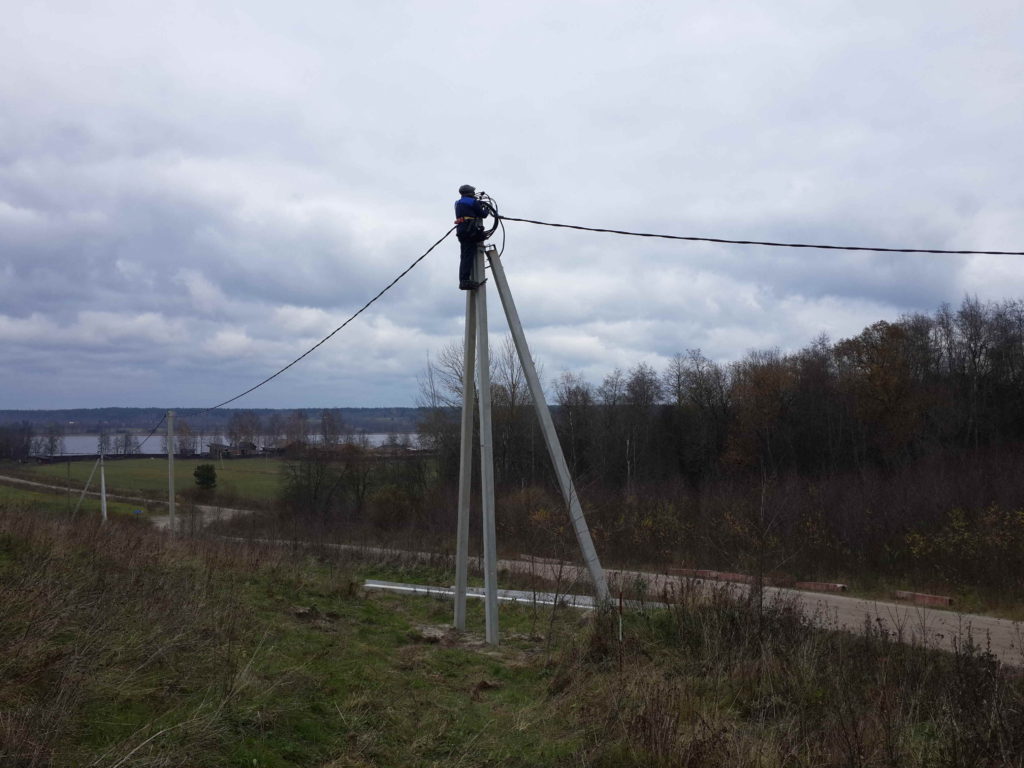
But at the very top of the support there was one unpleasant moment. Since this support is a tripod, and I had to rise above the point of the jib link, it was necessary to re-fasten the belay. The hardest thing was to overcome the thought that for a few seconds I would have to run the risk of falling down. But I was completely focused on the process, securely fixed both crampons, jumped on them, and re-fastened the belay without letting go of the pole in my hands.
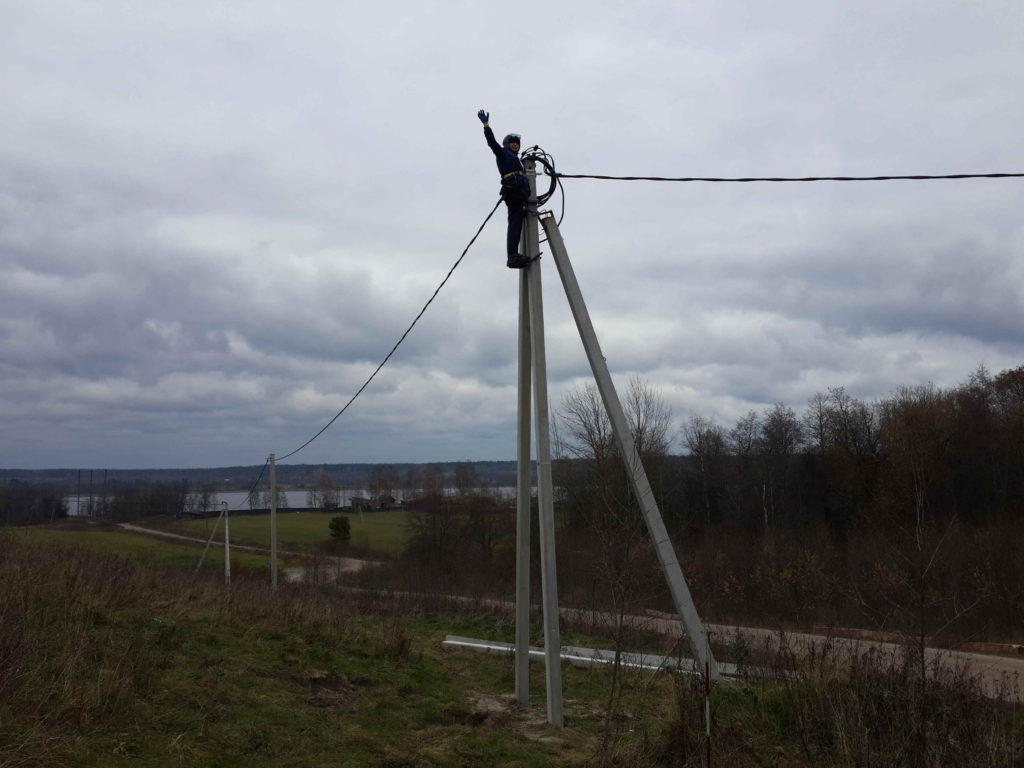
Everything went perfectly and without any difficulties. At the top, I connected the drain wires to the main wires using piercing clamps with breakaway heads. I also did this for the first time in my life, and immediately at a height of eight meters above the ground. Nothing complicated.
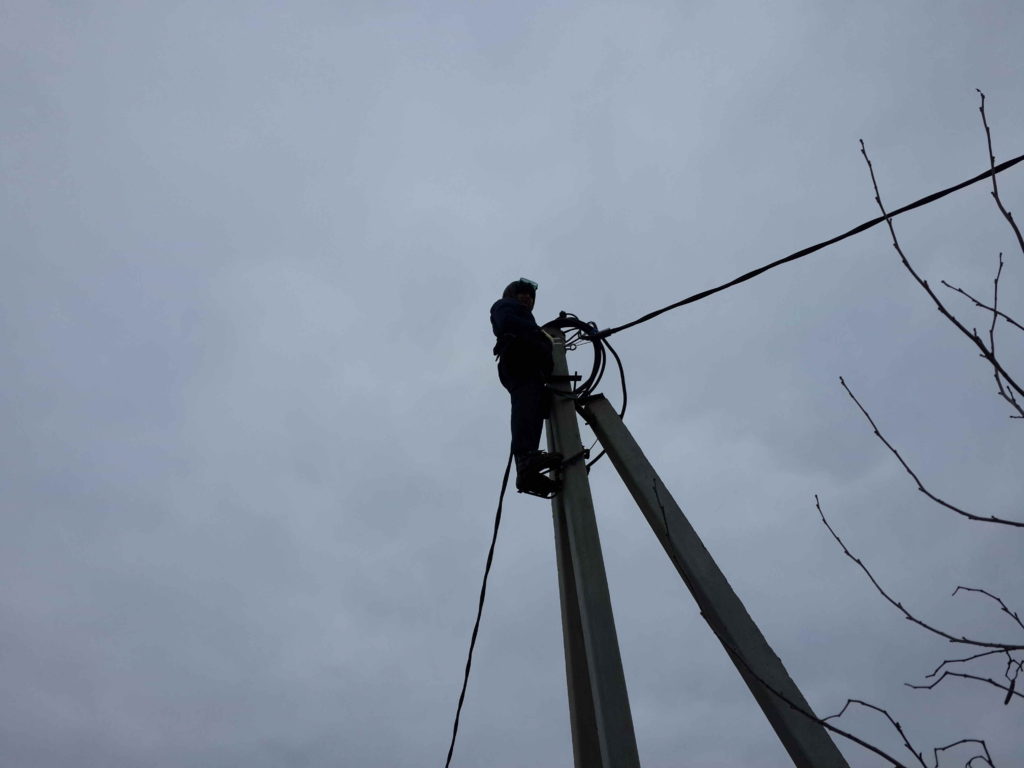
The weather was windy, and I wore safety glasses to prevent my eyes from watering and this would not interfere with my work. However, at the time of the ascent the wind died down, and the glasses were not useful to me. I also prudently wore gloves with a continuous anti-slip coating. The SIP wire is very slippery, and the concrete support is quite smooth. At the top I was still afraid of dropping something, and then I would have to repeat the ascent. But he did everything without fuss, thinking through all the moves in advance, and no failures occurred.
In the process of descending from the support, every 0.8 meters I secured the cable, previously threaded into the HDPE corrugation, with steel tape. I don’t have a special tool for tightening the ribbons, so I tightened it as best I could by hand. But, much effort is not required here: 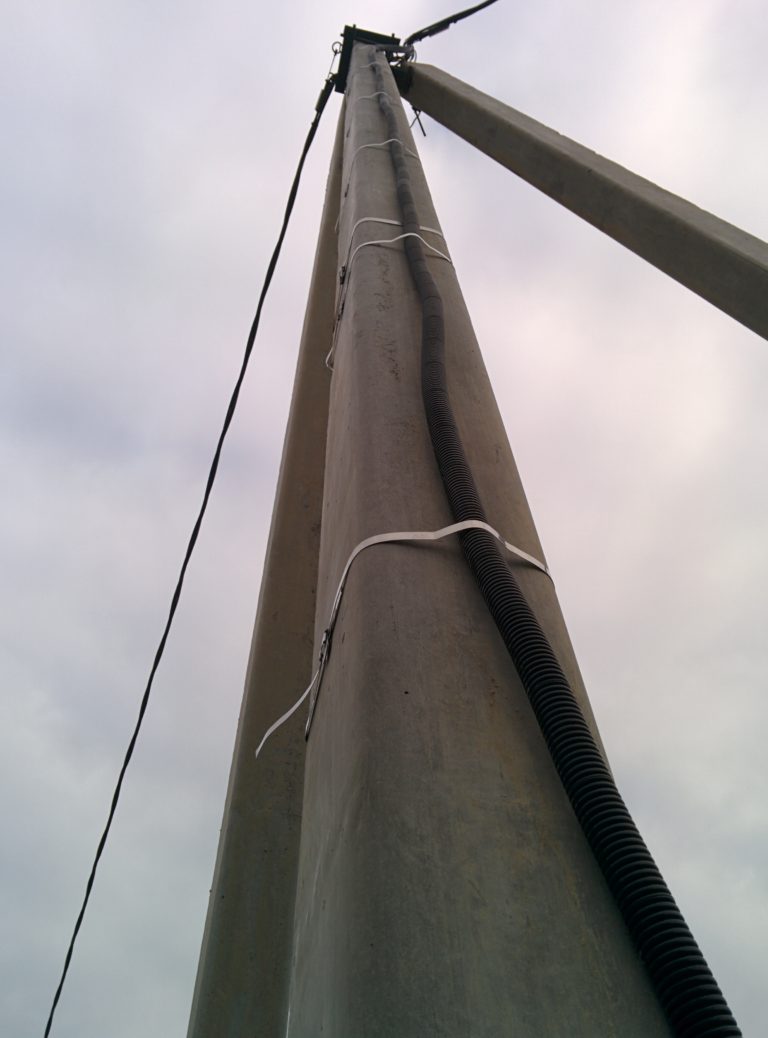
![]()
Then everything is simple. I secured the shield to the support with pre-made brackets, ran the cable, and connected it. I grounded the door, the panel body and the mounting panel, connecting it through the clamp to the grounding of the support. I did not do any zeroing in the shield. Grounding is done at the top of the support, this is enough. In addition, Lenenergo requires either a sealed input neutral terminal, which I could not find on sale, or a neutral wire inserted directly into the meter, which is what I did. You can also reset it to zero after the counter, but this is not necessary.
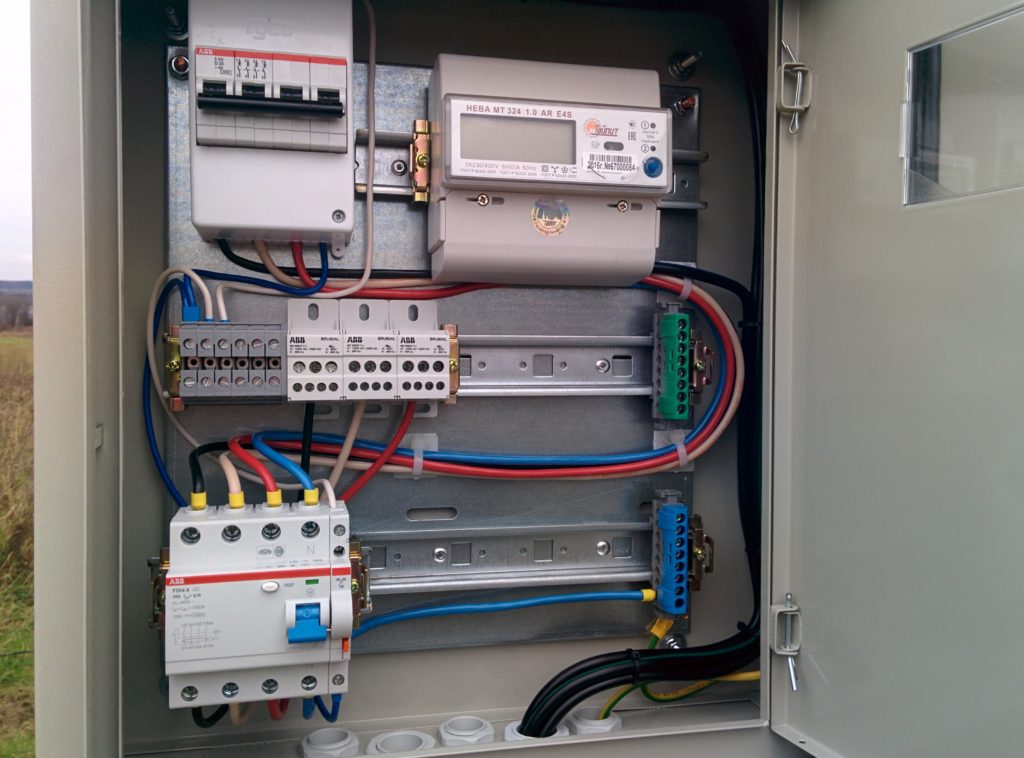
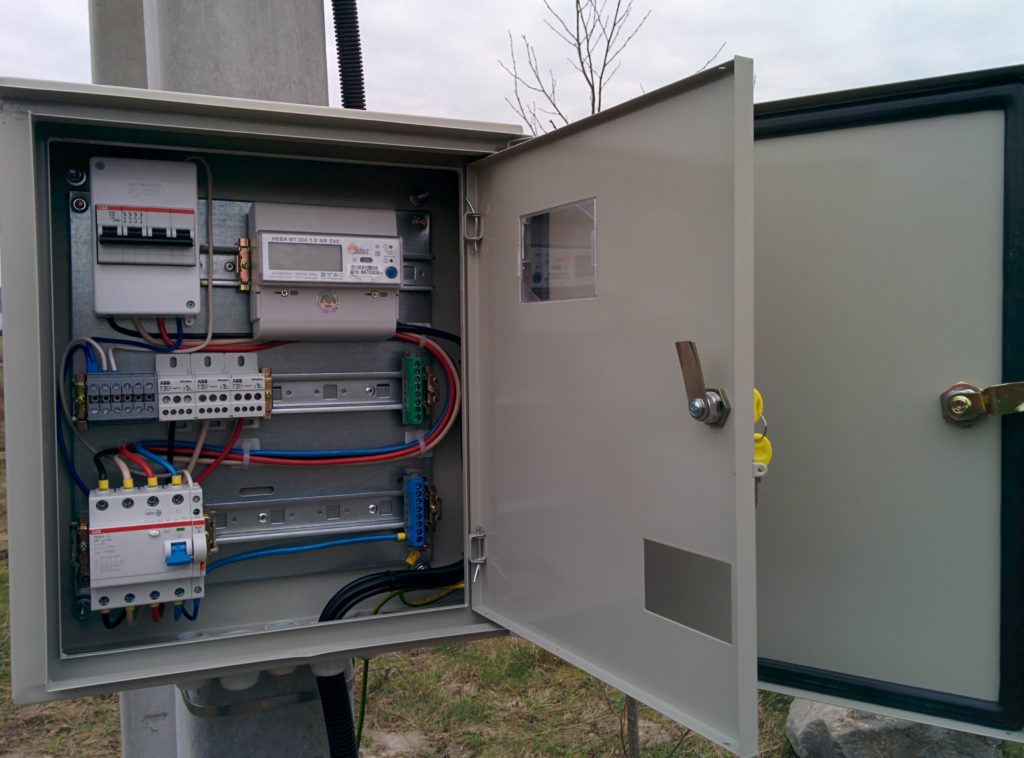
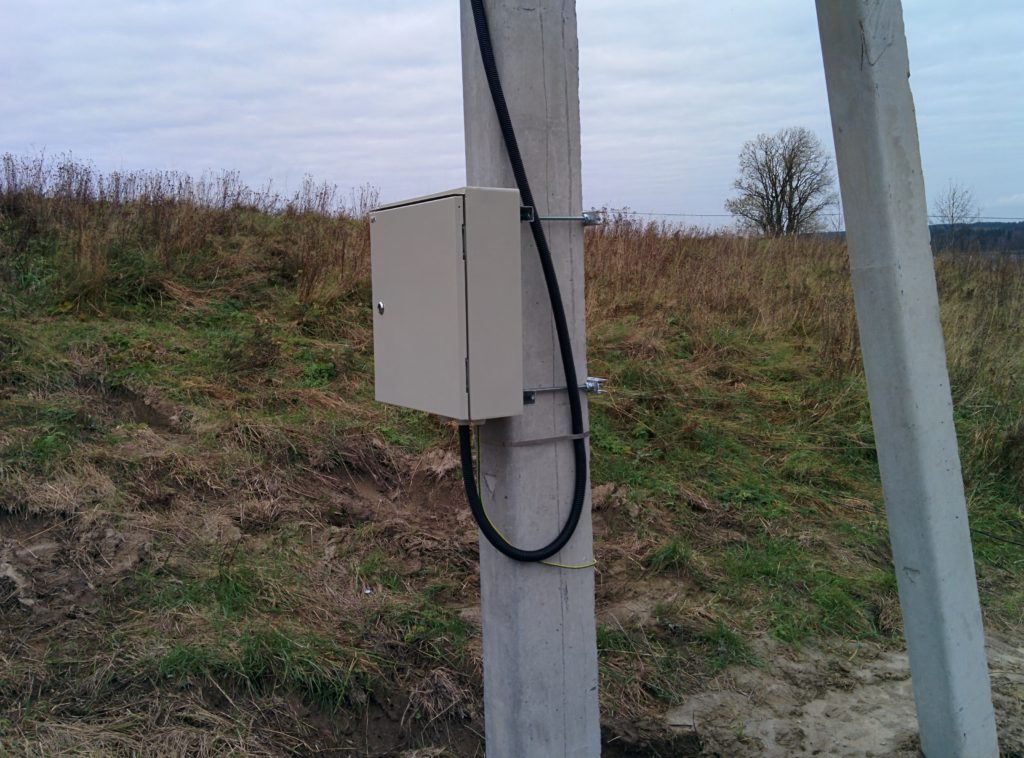
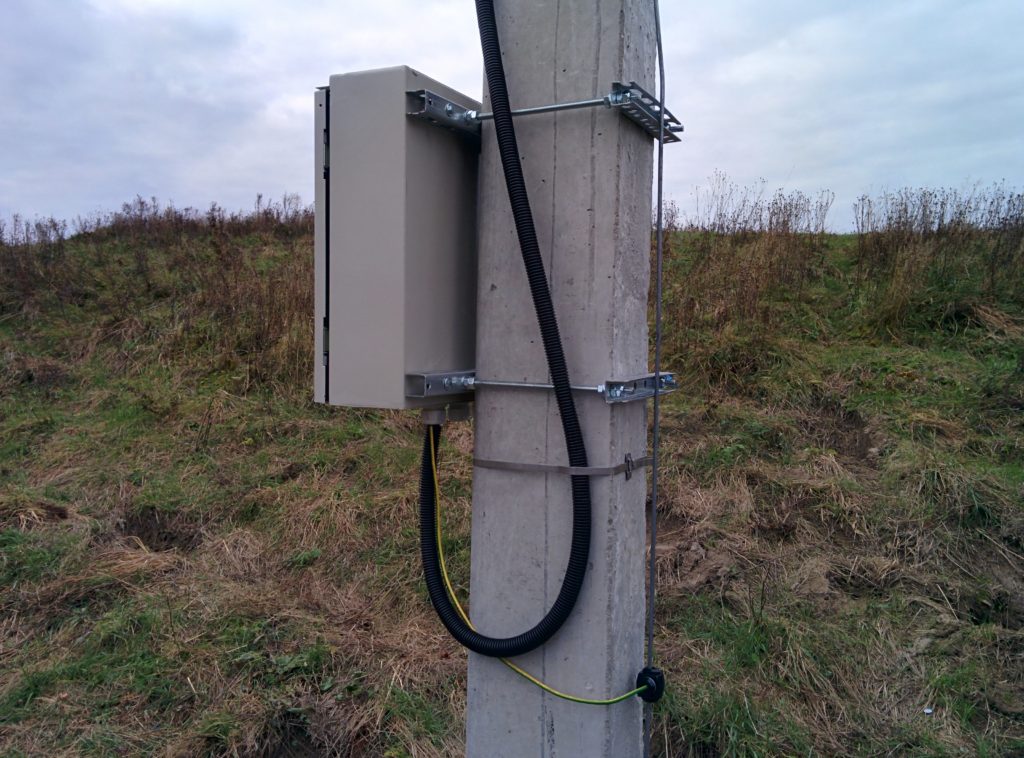
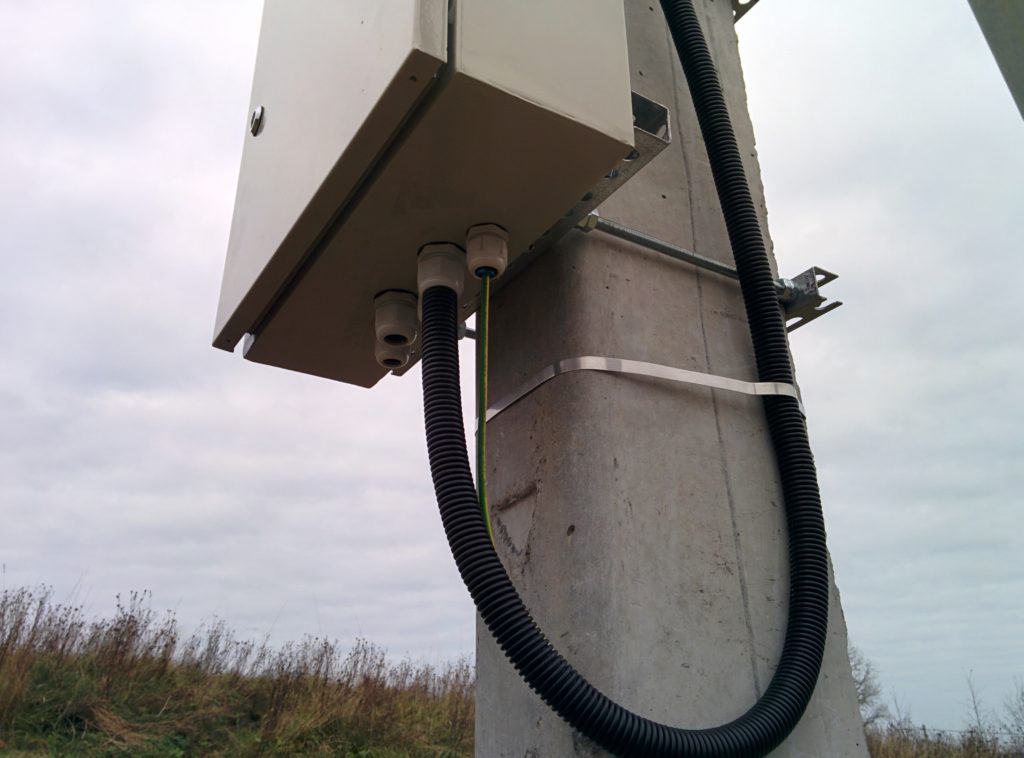

The seals that were not yet in use were sealed with pieces of SIP conductors to ensure tightness: 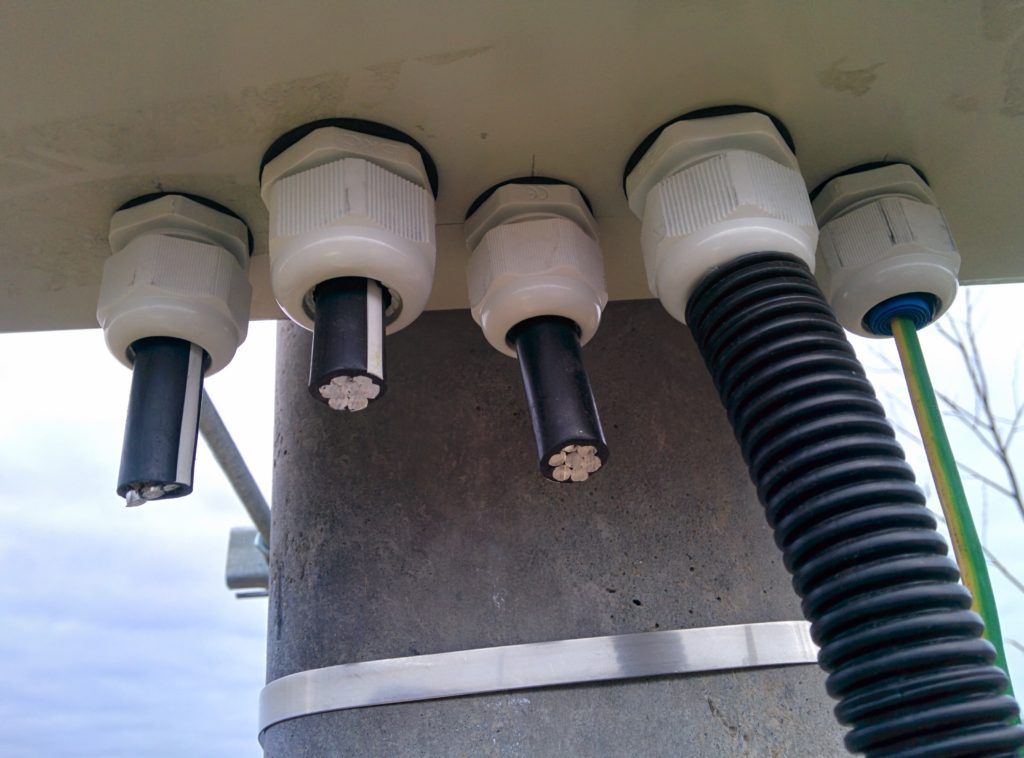
The shield is ready. Now all that remains is to wait for our zero-four to connect through the TP to ten and “supply voltage and power,” as the contract says.
While I was digging through my panel, the hired electrician from Lenenergo managed to install the descent and panel on the neighbor’s property. I didn’t find the electrician, but I went to take a closer look at how everything was done. Once again I was convinced of the truth of the expression “if you want to do it well, do it yourself.” I, not being a professional electrician, performed the entire installation much better and more correctly than a professional from a monopoly company.
Absolutely everything was done poorly there. The release is covered with corrugation with a diameter twice as large as required, which is why it jammed in places where the puffs were tightened. The descent is secured to the support in only three places, and not with steel tape or reinforced ties, but with ordinary thin ones. The entry into the shield is made without a seal, simply through a hole in the housing; there can be no talk of any tightness. The grounding wire does not have a terminal, it is simply screwed onto a pin under a nut, and is also taken out of the shield without a gland. A hole is cut out in the meter cover for the wires, so as not to worry about molding and laying. The shield itself is secured to the support with flimsy corners made “on the knee”, everything is held in place only so that it does not fall. Well, this will all work, of course. But how hand-cooked and collective-farm it was done... It’s good that I started doing everything myself, I haven’t regretted it even once.
Expenses
- Shield ShchURn-3 IP54 445x400x150, IEK — 2452 rub. (ETM, MKM51-N-09-54)
- Shield ShchRN-P-4 plastic IP30 130x90x65, Tuso - 33 rubles. (ETM, 68024)
- Meter Neva MT324 ARE4S, Taypit - 4105 rub. (ETM, 6109137)
- RCD F204 A-25/0.1, ABB - 4512 rub. (ETM, F204 A-25/0.1)
- Four-pole automatic machine S204 25A D, ABB — 4961 rub. (ETM, S204 D25)
- Signal contact S2C-S/H6R, ABB — 506 rub. (ETM, S2C-S/H6R)
- Terminal block BRU 80A, ABB, 3 pcs - 2451 rub. (ETM, 6208R2500)
- Screw terminal M6/8 6 mm.kv, ABB, 6 pcs - 358 rub. (ETM, 5118R1100)
- End insulator FEM6 MA2.5-M10, ABB - 26 RUR. (ETM, 8368R1600)
- EARTH terminal 8x1.5-16mm.sq. green, Legrand - 430 rub. (ETM, 004832)
- Terminal 8x1.5-16mm.kv blue, Legrand - 578 rub. (ETM, 004842
- DIN rail 1000mm ED4 width 4, ABB - 422 RUR. (ETM, ED4)
- Stopper for DIN rail, IEK, 8 pcs - 94 rub. (ETM: YXD10)
- Cable gland PG-21 IP68 13-18 mm, DKC, 2 pcs - 90 rub. (ETM, 53000)
- Pin lug NSHVI 6-12, KVT, 200 pcs - 278 rub. (TechElectro)
- Pin lug NSHVI(2) 6-14, KVT, 200 pcs - 508 rub. (TechElectro)
- Set of tips NSHVI No. 5, KVT - 856 rub. (TechElectro)
- Power wire PuGV 1x6 red, Alur, 10 m — 376 rub. (ETM, 0304402001)
- Power cable PUGV 1x6 white, Alur, 10 m - 360 rub. (ETM, 0304401000)
- Power cable PUGV 1x6 black, Alur, 10 m - 376 rub. (ETM, 0304400000)
- Power cable PUGV 1x6 blue, Alur, 10 m - 376 rub. (ETM, 0304403001)
- Power cable PUGV 1x6 yellow-green, Alur, 3 m - 108 rub. (ETM, 0304406050)
- Pad 7.6 mm self-adhesive 25x25 white, 100 pcs - 200 rub. (Maxidom)
- Nylon clamps 300x4.8, 100 pcs - 300 rub. (Maxidom)
- U-shaped profile, threaded rods, fasteners - RUB 1,500. (Maxidom)
- Piercing branch clamp for SIP, 4 pcs - 448 rub. (NER)
- Stainless steel bandage tape steel, 8 mm, 25 m and clamps 10 pcs - 752 rub. (NER)
- Universal manholes LU (cats) for reinforced concrete supports - RUB 3,200. (NER)
- Reinforced couplers for SIP KSU 6x180, 100 pcs - 570 rub. (TechElectro)
- Cable SIP-4 4x16-0.6/1, 12 m - 842 rub. (ETM)
- Safety belt - was available
Placing an electrical panel on the street is not such an absurd idea as it might seem. The reasons for such a technical solution are as follows:
1. Energy sales organizations often insist that the device for metering electricity consumption and, accordingly, be located within reach of the inspector. This is especially true for large country residences, where owners can relatively easily “hide” additional input in the house past the meter for known purposes. On the other hand, the shield on a street support is clearly visible from all sides and does not cause any doubts or suspicions in the inspector.
2. In the same country residence, the introductory electrical panel can also be quite impressive. And it is quite understandable to want to save on space and move at least the metering device and input outside the house.
3. In the end, the switchboard may simply not fit into the interior of the living space, especially if the latter is designer. In this case, you can not only take the shield into some utility room, but also go further by placing it outside.
Well, and, of course, placing a billboard on the street has its downsides. Here they are:
1. Despite the technical conditions from energy sales companies, an electric meter on the street may be a violation of clause 1.5.27 of the PUE, which states that electric meters can be placed in unheated rooms and street cabinets only if there is local heating that provides a positive temperature for the meter. And such a restriction is not always easy to comply with.
Meanwhile, at subzero temperatures, an induction electricity meter inevitably begins, simply put, to “lie.” Moreover, “lying” is not in favor of the subscriber, so Energosbyt is of little concern about this circumstance. For the subscriber this is a significant disadvantage.
2. located in a street shield is not very convenient. Especially if it’s winter and the shield is at a significant height for security reasons against thieves and hooligans. A shield standing high on a support is inconvenient to repair and maintain: at a minimum, you cannot do without a stepladder.
3. By placing a shield with group devices on the street, we will be forced to pull group lines from there. Moreover, the larger the house itself, the more these lines there will be and the more impressive the “web” connecting the entrance panel and the building will be. There is little good in this, even if the “web” is hidden in a pipe located underground.
Therefore, for a reputable cottage, the option of placing group machines in a street panel is eliminated: such a technical solution is acceptable only for country houses, garages and other small buildings. And the advantages of a street billboard, in which only an introductory machine and a counter are installed, are no longer so obvious.
Composition and electrical panel for outdoor installation
The outdoor electrical panel, first of all, includes an input circuit breaker with two poles for a single-phase network and four or three poles. It will be possible to use an additional pole to completely disconnect the network and even break the neutral conductor. This will be useful in case of problems in the supply network itself, which, unfortunately, also happens sometimes.
The input circuit breaker not only provides the ability to disconnect the network, but also protects it from current overloads. However, in addition to this, differential fire protection of the network is also necessary, which can be provided by using a differential rather than a simple input circuit breaker. Another option is a separate RCD, which will be installed immediately after the input device. The rating of such an RCD should be 100-300 milliamps.
After the input circuit breaker and the differential protection device, one should be placed, designed for the appropriate number of phases. If the load in the network does not exceed 100 amperes, then the meter can be directly connected. If the load is more than 100 amperes, then the meter will have to be connected through current transformers, which will lead to a significant increase in the dimensions of the panel.
This is the minimum set of devices. It can be supplemented, for example, by using an independent release for the input circuit breaker. But in addition to this, it is necessary to include equipment in the shield to maintain a positive temperature in winter. The simplest solution is a modular thermostat paired with special heaters for electrical panels, which are produced by most major manufacturers of modular electrical equipment.
In addition to the devices, this panel should contain zero buses PE and N, connected by a jumper. If the shield body is metal (which is most likely for outdoor conditions), then it should be grounded by connecting it to a PE bus. To the same PE bus, using a copper wire with a cross-section not less than the cross-section of the input phase conductor, a repeated grounding device should be connected, located in the ground at the installation site of the switchboard. It can be made from several vertical steel rods with a diameter of about 16 mm or corners of equivalent cross-section, connected to each other using a welded steel strip 4 * 40 mm.
Since the input and the electric meter are, according to energy sales companies, deeply intimate things, the box in which this equipment will be placed must be sealable. In this case, the user should only be able to take readings and turn on/off switching/protective devices. The shield itself must be securely closed and locked with a key.
In addition, since the shield will be located outdoors, it must have an increased degree of protection from external influences: usually at least IP54.
Installation of a shield on the street
The place where the street billboard is installed is usually not the street in literally, and a yard or plot is, in general, personal territory. This choice is made for reasons of basic safety.
To install the shield, an additional separate support is most often used, which becomes mandatory for long branches. If there is no such support, then you can build a stand from scrap materials. The shield itself must be securely fixed in level, for example, using through bolts.
Energy sales companies often insist that the street panel with the metering device be mounted at a height of 3 meters or higher. With this arrangement, safety becomes of particular importance: it is necessary to take into account both the influence of wind and the fact that over time the fastening may become weaker.
It is better to enter into the shield through intermediate insulators so that the input wire/cable, when swinging, does not rub its insulation and is pulled out. The outgoing line does not have to be made overhead; it can also be run in a pipe underground.
Alexander Molokov
It's time to redo the introductory shield on the pole.
A power of 4 kW is allocated for all SNT members. I don’t know what this limitation is connected with - it seems like everyone everywhere is already allocated 10-15 kW without any problems.
Be that as it may, our networks are practically new, carried out by SIP.
I agreed to double the capacity. As a result, the agreement with Energosbyt will include the input of 8 kW per phase.
The entrance to the house will be laid with a VVGng 3x16 cable in a technical HDPE pipe.
Grounding according to the TN-C-S system.
I was prohibited from altering the entrance cabinet myself, citing the fact that the switchboard would not be accepted and this alteration should be carried out by an electrician...
For the shield the following was purchased:
- 40A introductory circuit breaker from Legran
- selective 300mA RCD from ABB
- 40A home circuit breaker from ABB
- 25A automatic machine from ABB for an additional panel on the site (for welding, etc.)
- for organizing PEN branching
- terminal M10/10 for the output of the ground wire for the cable, which will subsequently be connected to the 25A machine
- installation was carried out using PV3 wire 10 square meters in double insulation.
The counter remains the same - Mercury 200.02
The cable for connecting to the pole was laid in advance and was waiting in the wings.
A trench was dug to the post into which the cable was laid. For protection, I laid special plates on top so that in the future I would not break it with a crowbar or shovel.
I talked about these plates.
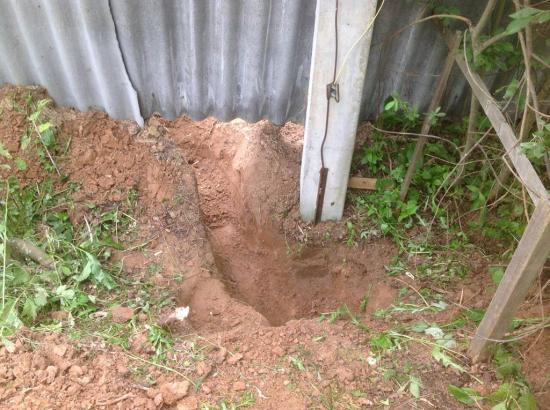


I put a metal pipe on the HDPE pipe, which I had previously painted gray.
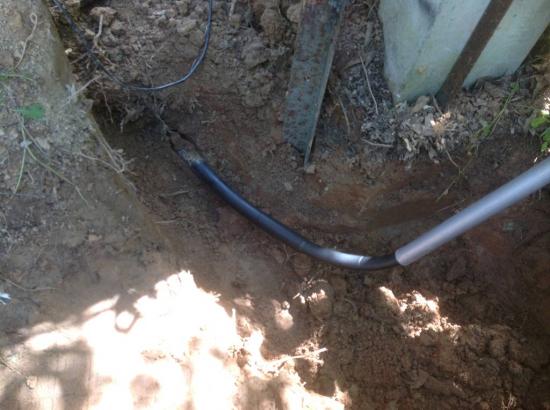

In the metal shield, using a “cricket” (a device for cutting metal with a drill), I widened the holes for the seals.
Using a step drill, an additional hole was made to enter the SIP cable. They did not put an oil seal under it - the shield is so not airtight that there is no special meaning in it. The hole and corrugation were processed so that the cable was not damaged by the edges.
The diagram of the shield on the pole turned out like this:
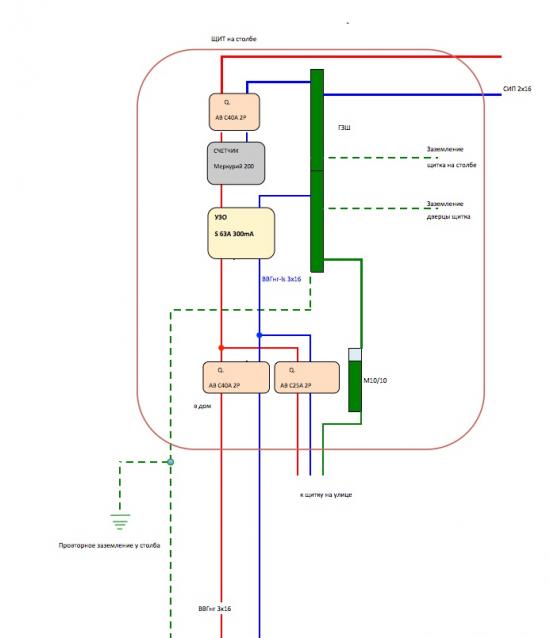

Since three modules were used from ABB, I used a regular bus to connect them. This made the installation compact and there was no need to fuss with the cable to connect them.
The only thing is that when using the bus, the cable entry into the RCD had to be done from below, and not from above. But this is not critical - you can do it this way.
The RBP-95 block was used in order not to tear the PEN cable, but simply pass it through, cutting off the insulation.
The ground connection was made with a crimped conductor of PV3 wire 16 squares.
They were compressed using a manual hydraulic press from KVT PGR-70.
They were fastened with M8 bolts directly to the RBP-95 distribution block - the photo shows the fastening.
![]()
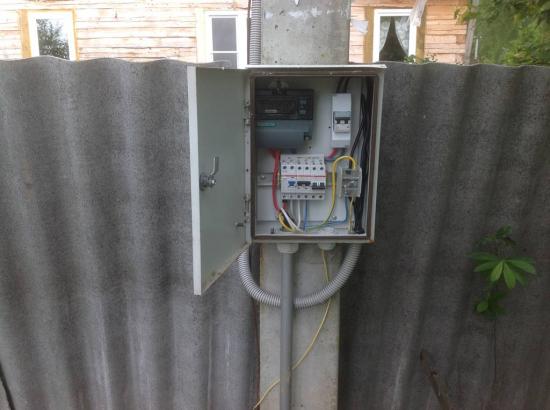
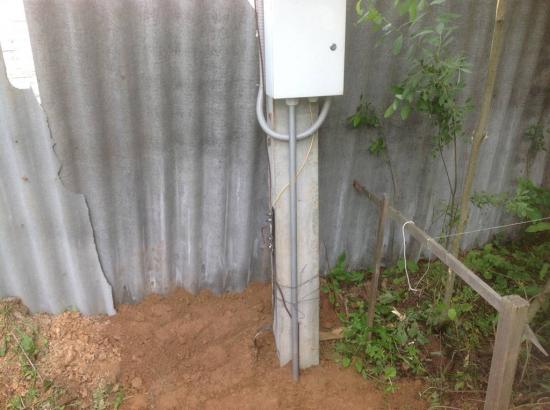
Since the old shield was used - the one that had already been on the pole, for internal peace and from the “pioneers” it was decided to make an internal opening/closing door from duralumin.
I had a scrap of duralumin, as well as corners, which I attached with rivets to the inner side surfaces of the cabinet, 2.5 cm from the edge.
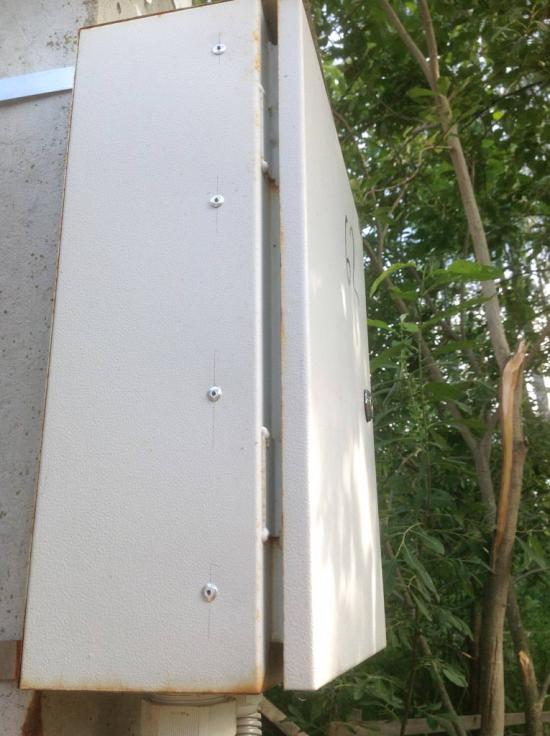
It turned out that the door is located slightly ABOVE the machines, but this does not interfere with their control.
This happened because the 3x16 input cable was so “oaky” that it was not possible to press it additionally so that the homemade plastron door could be lowered closer to the machine.
Well, it's not scary...
Riveted corners measuring 20x40mm.
On the left side of the corner, before installing it in the cabinet, I riveted another corner - a little smaller in size so that the lock would close normally - so that the tongue from the lock would fit snugly.
Here in the photo you can see how the second corner is attached.
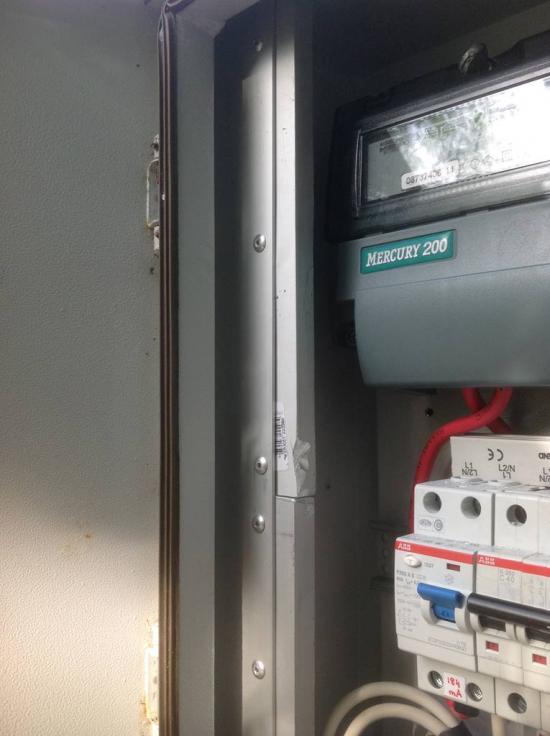
On the right side, I riveted a couple of hinges to the corner and already attached a duralumin plastron door to them:

Before installing the corners, I moved the meter to the right - closer to the input machine, so that the corner on the left did not overlap the meter display.
From the RBP-95 block I brought out a 10-square wire to the M10/10 terminal to connect the ground of the cable that will be connected to the B25A machine.
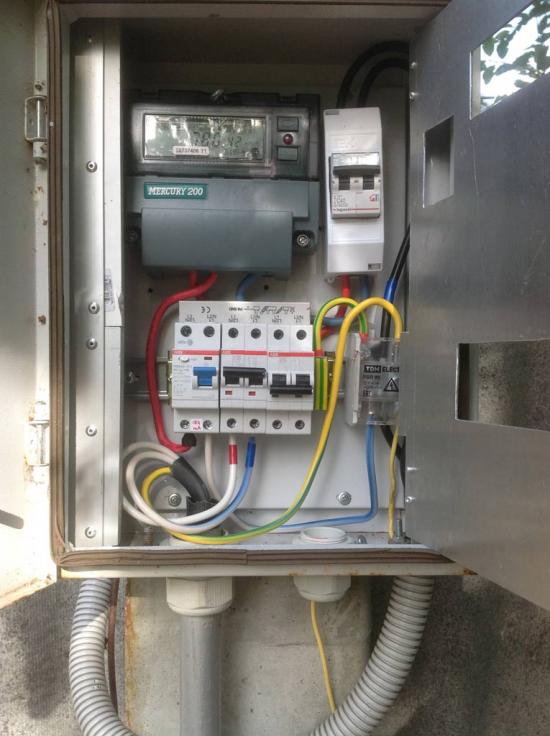

Finally, I pasted a sticker:

To re-ground, I drove a 63x63 by 2m corner next to the pole and connected it to the existing one. History is silent about the depth to which the old corner was driven.
Accordingly, the fastenings were moved to a new corner.
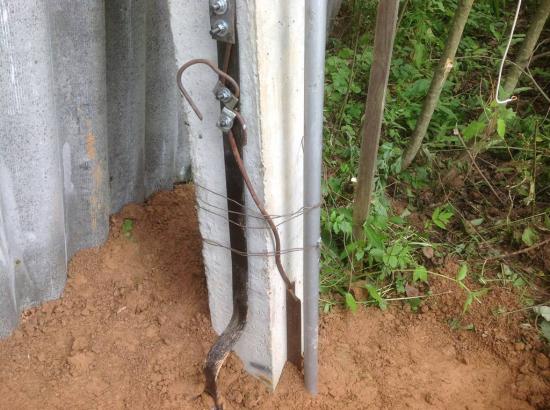


All that remains is to make a more or less normal fastening of the pipe to the pole and ground the panel door.
The cable will enter the house into this distribution panel:
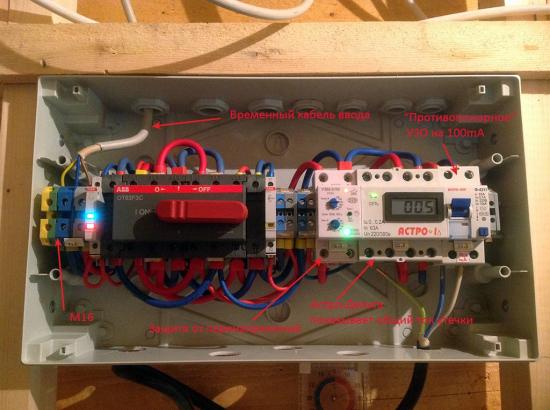
And after it the main shield will be located.
Subsequently, additional grounding of the cabinet doors was done - both main and additional.


